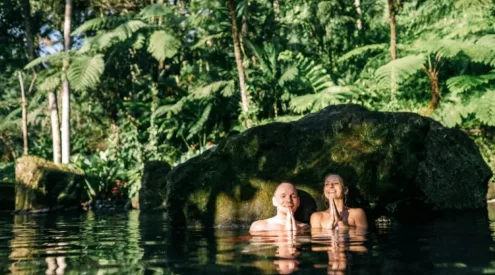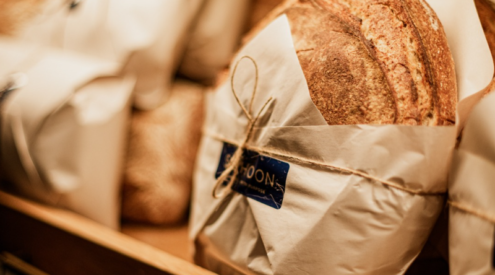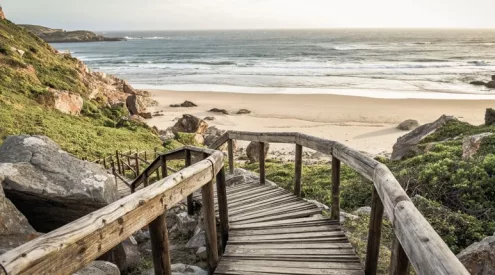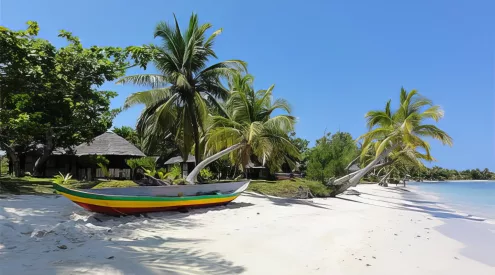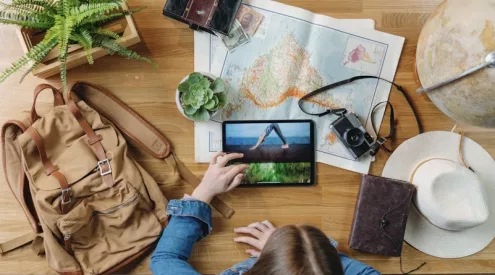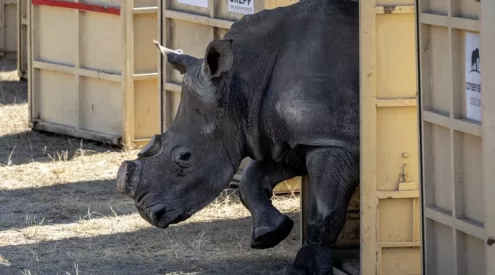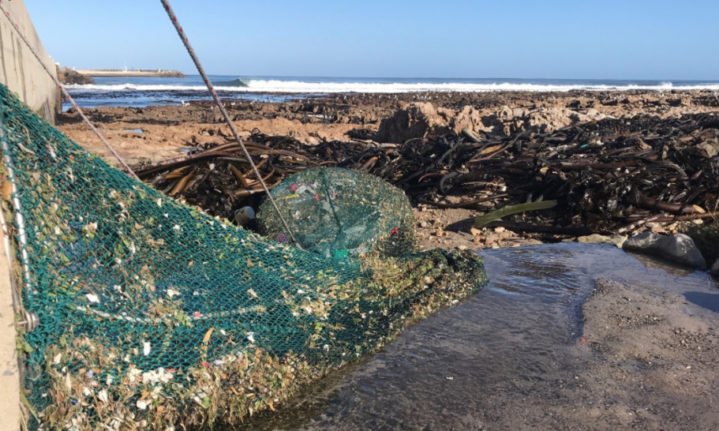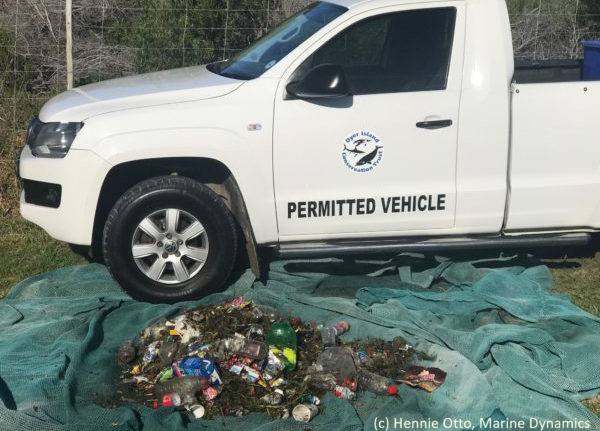Like many of the world’s harbours, Gansbaai’s has been plagued by pollution, with plastic waste and other rubbish entering the sea via stormwater drains and then collecting in sheltered harbour areas.
Inspired by Austalia’s city of Kwinana, which installed two drainage nets in the Henley Reserve to catch plastic, Wildfred Chivell, founder of the Dyer Island Conservation Trust, has implemented a similar project in Gansbaai.
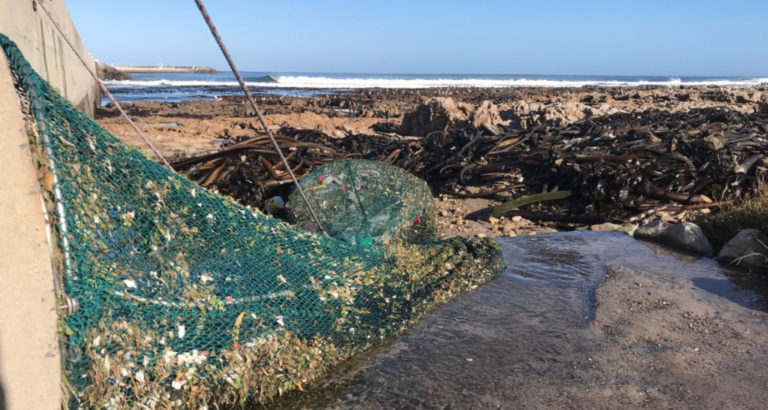
One of Gansbaai’s new litter-trapping nets.
Within four months of installation in Kwinana, 370kg of litter had been prevented from entering the river system and Wilfred hopes this local project will minimise the amount of waste entering the sea.
‘We noted the pollution from the stormwater drain in the Gansbaai harbour, whilst on a clean-up,’ said Mr Chivell. ‘The outlet leads straight to nearby rock pools and into the ocean. The kelp that traps some of the waste makes it difficult to clean and this too is ultimately washed out to sea. We have been doing clean-ups for twenty years and 80% of the waste is plastic. Dyer Island Conservation Trust is the first port of call for marine animal rescues and strandings in the Gansbaai area and we have witnessed first-hand the impact on our marine wildlife.’
There are 63 stormwater outlets in Gansbaai and if the project is successful here, it will hopefully be rolled out to surrounding areas in collaboration with the Overstrand Municipality.

Litter successfully collected by the new net system.
Local shark cage diving operation, Marine Dynamics, sponsored the first net design in the area and project leaders Hennie Otto from Marine Dynamics and Benjamin Kondokter from the Overstrand Municipality oversaw the project, with the first net installed on World Oceans Day, 8 June.
Unfortunately, the first net tore during a rainstorm because it was an oyster net and the design wasn’t ideally suited to achieve the results the group was looking for. Otto and Kondokter approached Ian Wessels of Wildegans Fishery for some of their expertise. The fishery provided sardine purse seine nets for free and helped with necessary stitching, and the stormwater net was reinstalled on 3 July, which just so happened to also be Plastic Bag Free Day.
It’s estimated that by 2025, 250 million tons of plastic waste will have entered the oceans. Seabirds, turtles, whales, dolphins and fish all ingest plastic debris and marine litter also ends up on the seabed.
‘We hope that through this project we can minimise this impact by reducing the amount of waste entering the marine system. Unfortunately, most of the waste will probably not be suitable for recycling, but we will do this where possible. This is a worldwide problem and our dream is to roll this out in the Overstrand and in South Africa,’ said Mr Chivell.
Images: Hennie Otto

